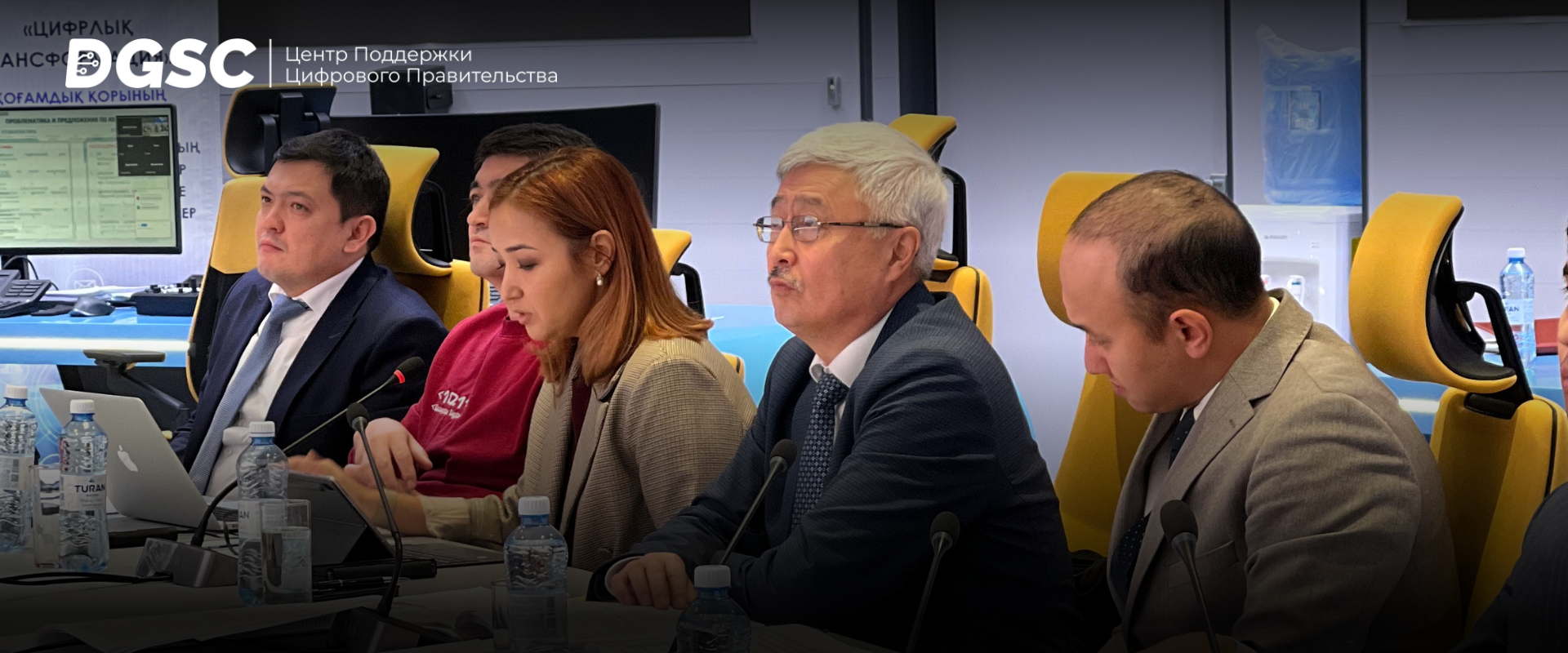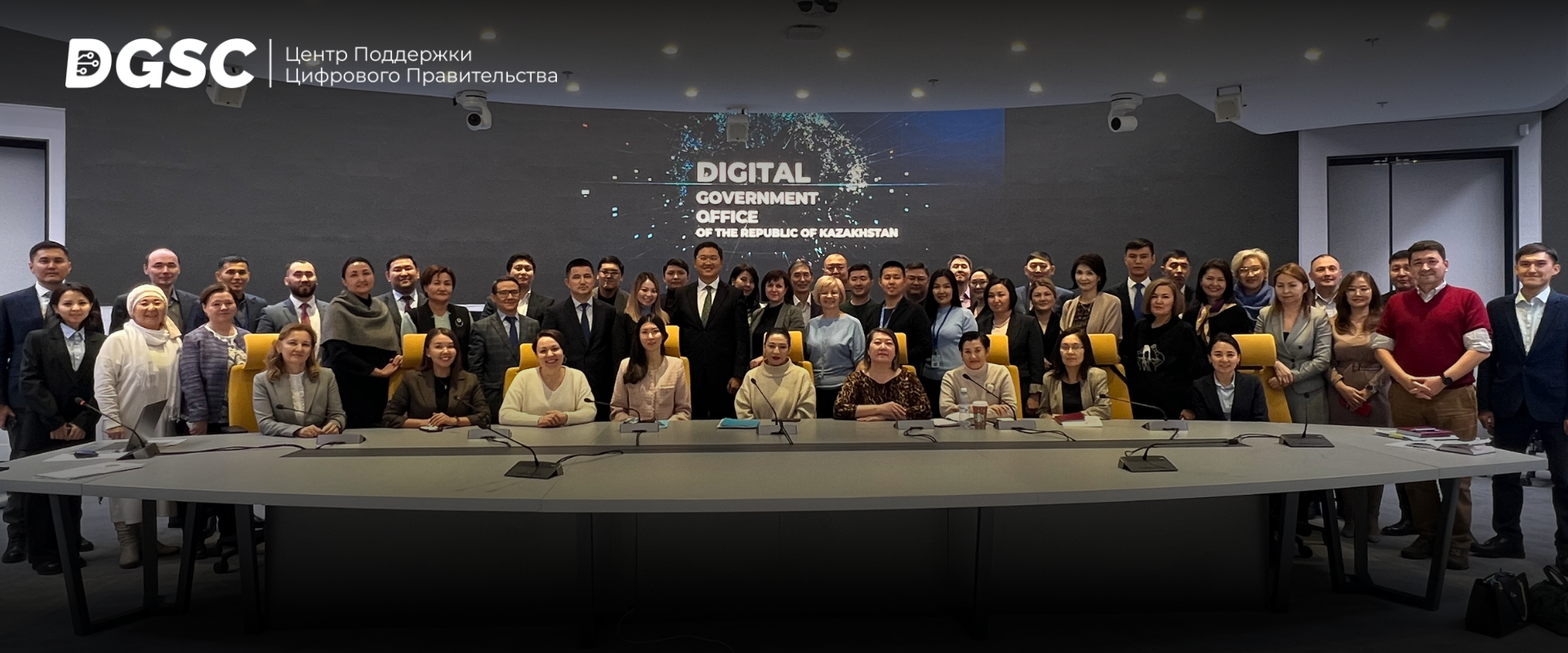О проведении внутреннего анализа коррупционных рисков
15 марта 2024 года в соответствии с пунктами 4-8 Типовых правил проведения внутреннего анализа коррупционных рисков, утвержденных приказом Председателя Агентства Республики Казахстан по делам государственной службы и противодействию коррупции от 19 октября 2016 года № 12 «Об утверждении Типовых правил проведения внутреннего анализа коррупционных рисков» и подпунктом 6) пункта 24 Устава Республиканского государственного предприятия на праве хозяйственного ведения «Центр поддержки цифрового правительства» Министерства цифрового развития, инноваций и аэрокосмической промышленности Республики Казахстан (далее – Предприятие), в целях обеспечения эффективности реализации уставных задач подписан Приказ № 22/НҚ, в рамках которого утвержден график мероприятий по проведению внутреннего анализа коррупционных рисков и устранению выявленных коррупционных рисков в Республиканском государственном предприятии на праве хозяйственного ведения «Центр поддержки цифрового правительства» Министерства цифрового развития, инноваций и аэрокосмической промышленности Республики Казахстан на 2024 год, а также созданы рабочие группы по проведению внутреннего анализа коррупционных рисков в Предприятии.
О начале публичного обсуждения результатов внутреннего анализа коррупционных рисков
6 ноября 2023 года в РГП на ПХВ «Центр поддержки цифрового правительства» начинается публичное обсуждение результатов внутреннего анализа коррупционных рисков в предприятии на основе результатов работы комиссии в составе рабочих групп.
Об утверждении Графика мероприятий по проведению внутреннего анализа коррупционных рисков #3
22 сентября 2023 года Приказом № 89/НК утвержден График мероприятий по проведению внутреннего анализа коррупционных рисков и устранению выявленных коррупционных рисков в Республиканском государственном предприятим на праве хозяйственного ведения «Центр поддержки цифрового правительства» Министерства цифрового развития, инноваций и аэрокосмической промышленности Республики Казахстан.
А также созданы Рабочие группы по проведению внутреннего анализа коррупционных рисков в Предприятии в следующих структурных подразделениях:
- в Службе HR и административного сопровождения и Службе финансово-экономической работы и бухгалтерского учета.
- в Центре мониторинга и управления проектами.
- в Центре экспертизы.
Рабочие группы, согласно графику, должны провести внутреннего анализа коррупционных рисков и устранению выявленных коррупционных рисков по следующим направлениям:
1) выявление коррупционных рисков в нормативных правовых актах, затрагивающих деятельность объекта анализа;
2) выявление коррупционных рисков в организационно-управленческой деятельности объекта анализа.
Срок проведения внутреннего анализа коррупционных рисков в структурных подразделениях Предприятия: с 6 октября по 3 ноября 2023 года
Список прошедших курс «Порядок разработки текущей и целевой архитектуры государственного органа. Сбор артефактов, анализ и визуализация данных, описание процессов, внедрение целевой архитектуры (теория и практика)»
| ФИО участника | Даты прохождения |
|---|---|
| Назаров Нариман Бекбулатович | 17-19.07.2023 |
| Исмаилов Асылхан Хангельдиевич | 17-19.07.2023 |
| Захаров Игорь Юрьевич | 17-19.07.2023 |
| Чукаев Асет Парзантович | 17-19.07.2023 |
| Маймаков Мират Мирбекович | 17-19.07.2023 |
| Балтабаев Болат Тулегенович | 17-19.07.2023 |
| Тепишев Есбол Кадыргажыевич | 17-19.07.2023 |
| Байзақов Жеңіс Ғалымұлы | 17-19.07.2023 |
| Исабеков Марат Тулегенович | 17-19.07.2023 |
| Джаналин Талгат Маратович | 17-19.07.2023 |
Список участников курса «Основы и принципы разработки архитектуры государственного органа. Цели, задачи и ожидаемые результаты»
| ФИО участника | Дата прохождения |
|---|---|
| Жумабаев Рустем Балтабаевич | 13.07.23-14.07.23 |
| Назаров Нариман Бекболатович | 13.07.23-14.07.23 |
| Исмаилов Асылхан Хангельдиевич | 13.07.23-14.07.23 |
| Айтбаева Аймгуль Куанышбаевна | 13.07.23-14.07.23 |
| Таубалдина Бибигуль Аргынгазиевна | 13.07.23-14.07.23 |
| Карвенов Жандос Кайратович | 13.07.23-14.07.23 |
| Сабыр Дәуренбек Сейітжанұлы | 13.07.23-14.07.23 |
| Шаукенов Руслан Жексембаевич | 13.07.23-14.07.23 |
| Шойнов Ержан Арыстанович | 13.07.23-14.07.23 |
| Исмагамбетов Талгат Амангельдинович | 13.07.23-14.07.23 |
| Иралиев Серик Хуанович | 13.07.23-14.07.23 |
| Оспанов Алмас Болатбекович | 13.07.23-14.07.23 |
| Кузенбеков Талгат Турымовичтың | 13.07.23-14.07.23 |
| Карбенов Аслан Жанайдаровичтың | 13.07.23-14.07.23 |
| Джулдасов Ержан Канатжанович | 13.07.23-14.07.23 |
| Габдуллин Азамат Абаевич | 13.07.23-14.07.23 |
| Солтанбеков Дамир Казбекулы | 13.07.23-14.07.23 |
| Квятковский Роман Вячеславович | 13.07.23-14.07.23 |
| Иманалиев Алмас Бексултанович | 13.07.23-14.07.23 |
| Балтабаев Болат Тулегенович | 13.07.23-14.07.23 |
| Қали Дулат Хайроллаұлы | 13.07.23-14.07.23 |
| Кадырова Жанат Серикбаевна | 13.07.23-14.07.23 |
| Кажибаева Айнагуль Умирбековна | 13.07.23-14.07.23 |
| Тепишев Есбол Кадыргажыевич | 13.07.23-14.07.23 |
| Калдыбеков Мурат Мейрамбаевич | 13.07.23-14.07.23 |
| Толыкбаев Талгат Есенкелдиевич | 13.07.23-14.07.23 |
| Даиров Кайсар Тауфикович | 13.07.23-14.07.23 |
| Солтанбеков Расул Сайранбекович | 13.07.23-14.07.23 |
| Афанасов Александр Николаевич | 13.07.23-14.07.23 |
| Кусаинов Тимур Темирболатович | 13.07.23-14.07.23 |
| Асылханов Аслан Галымжанович | 13.07.23-14.07.23 |
| Мажитов Назарбек Асабаевич | 13.07.23-14.07.23 |
| Әбішев Асқар Мирғалиұлы | 13.07.23-14.07.23 |
| Бейсембаев Ринат Болатович | 13.07.23-14.07.23 |
| Шоманов Арман Зульфикарович | 13.07.23-14.07.23 |
| Егорова Виктория Александровна | 13.07.23-14.07.23 |
Discussion of the project "Regulation from a clean slate" with business representatives
Today, a brainstorming session took place on the “Regulation from a Clean Slate” project with the participation of the Minister of Digital Development Bagdat Mussin and the First Vice Minister of National Economy Timur Zhaksylykov, as well as representatives of NCE Atameken and business.
At the moment, risk management systems have been formed in all areas of control and registers of mandatory requirements have been defined.
“The risk management system should be built on the basis of data collected in the information systems of state bodies. These data should be used to identify problem areas in various fields of business activity,” said Bagdat Musin.
The Digital Transformation Center team demonstrated the possibilities for developing services provided on the basis of risk management systems, as well as automatic notification of the appointment of inspections. Consider the life cycle of starting a business on the example of a travel operator.
The discussion turned out to be productive with constructive proposals for the interaction of business representatives with government agencies on issues of opening, submitting reports and passing inspections.
POA: problems and solutions
A brainstorming session was held on this topic today with the participation of the Minister of Digital Development Bagdat Musin, Vice Minister of Industry Dinara Shcheglova, as well as representatives of the Housing and Public Utilities Committee, POA, and public organizations.
The transition from Housing Cooperatives and other forms of management to POA began two years ago, however, it is not a secret that the process is very slow.
Bagdat Musin drew the attention of the assembled guests to several problems that hinder the process: “The reform is being hampered because we have not fully regulated the process. The problem is that there is no single state mechanism: how to start the activities of the POA. There are a lot of programs, but each of them sees in its own way how to solve certain problems with registration”.
Today, to create a POA, you need to register a legal entity - a non-profit organization. Further, at the meeting it is necessary to elect a chairman for one year.
To register a POA, apartment owners must:
- hold a meeting on the creation of the POA;
- elect from among the owners the council of the house for a period of three years, and also elect the chairman of the POA for one year (legal entity);
- elect an audit commission or an auditor for a term of three years;
- approve the charter of the POA;
- submit documents on registration of the POA to the Service center.
Even at the stage of the meeting of owners and voting for the choice, the first problems arise. As a result of brainstorming, it was proposed to use the functionality of the eGov Mobile application as a single tool for voting.
Issues of project management development
On December 1, a meeting of the working group on the development of project management was held under the Head of the Department of Public Administration of the Administration of the President of the Republic of Kazakhstan Akhmetov A.A.
Project management is one of the most important issues on the political agenda of the country.
“It is important to ensure the implementation of the decisions of the Supreme Council, the implementation of national projects, the introduction of the principles of project management of reforms,” the Head of State noted in his speech at a meeting of the Supreme Council on Reforms on October 21, 2020.
The authorized body for project management in Kazakhstan is the Ministry of National Economy, which is actively working to introduce project management into the activities of the state apparatus (training, coordination, methodological support, proposal development).
For 1.5 years, 23 project offices of central government agencies and 17 project offices of local executive bodies have been created and are operating.
In February 2021, the Office for Monitoring the Implementation of National Projects was created, in May 2022 it entered the matrix structure of the Digital Government Office.
In September 2022, in order to support the Office for Monitoring the Implementation of National Projects, the Project Management Support Center was established as part of the Digital Government Support Center.
The participants of the event got acquainted with the results of the work of a number of project offices of local executive and central government agencies. After that, they held a small brainstorm and discussed the Rules for the implementation of project management, approved by the Decree of the Government of the Republic of Kazakhstan dated May 31, 2021 No. 358.









